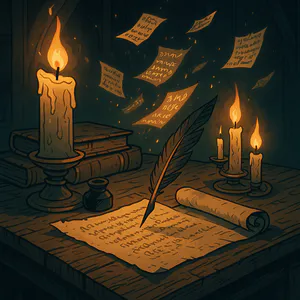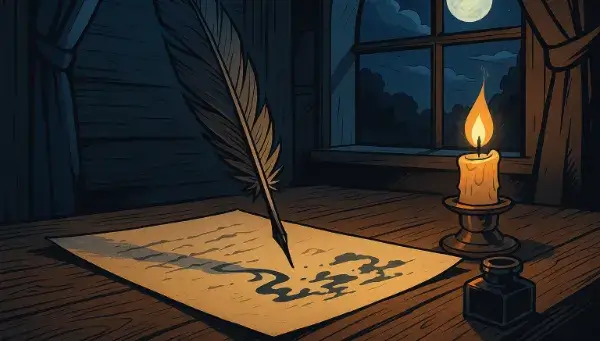Generate medieval names
More Fantasy Name Generators- <% result.name %>
Discover all Story Shack apps
Naming in the Age of Chivalry
Ready to christen your knights, squires, or common folk? Reflect on:
- Which social rank best suits this character?
- Does the name hint at land, lineage, or legend?
- Are you invoking Old English, Norse, or French influences?
- Should it be solemn and grave or lyrical and courtly?
- How many syllables carry the right rhythm?
Medieval Name FAQs
Answers to your medieval naming questions:
How does the Medieval Name Generator work?
It randomly pairs titles, given names, and locative surnames drawn from period-appropriate lexicons to create authentic-sounding medieval names.
Can I specify social rank or region?
Not currently; regenerate until you land on a combination that evokes the desired rank or locale.
Are these names historically accurate?
They follow medieval naming patterns but are fictional—ideal for world-building without copying real historical figures.
How many names can I generate?
Unlimited—click “Generate” as often as needed to stock your feudal fiefdoms.
How do I copy or save?
Click a name to copy it instantly, or click the heart icon to save it to your favorites.
What are good medieval names?
There's thousands of random medieval names in this generator. Here are some samples to start:
- Prince Consort Barnard
- Baron Davy
- Knight Godbert
- King Garin
- Reeve Toly
- Countess Gelleia
- Countess Mawd
- Princess Aaline
- Squire Eleanor
- Squire Meisent
About the creator
All idea generators and writing tools on The Story Shack are carefully crafted by storyteller and developer Martin Hooijmans. During the day I work on tech solutions. In my free hours I love diving into stories, be it reading, writing, gaming, roleplaying, you name it, I probably enjoy it. The Story Shack is my way of giving back to the global storytelling community. It's a huge creative outlet where I love bringing my ideas to life. Thanks for coming by, and if you enjoyed this tool, make sure you check out a few more!































































